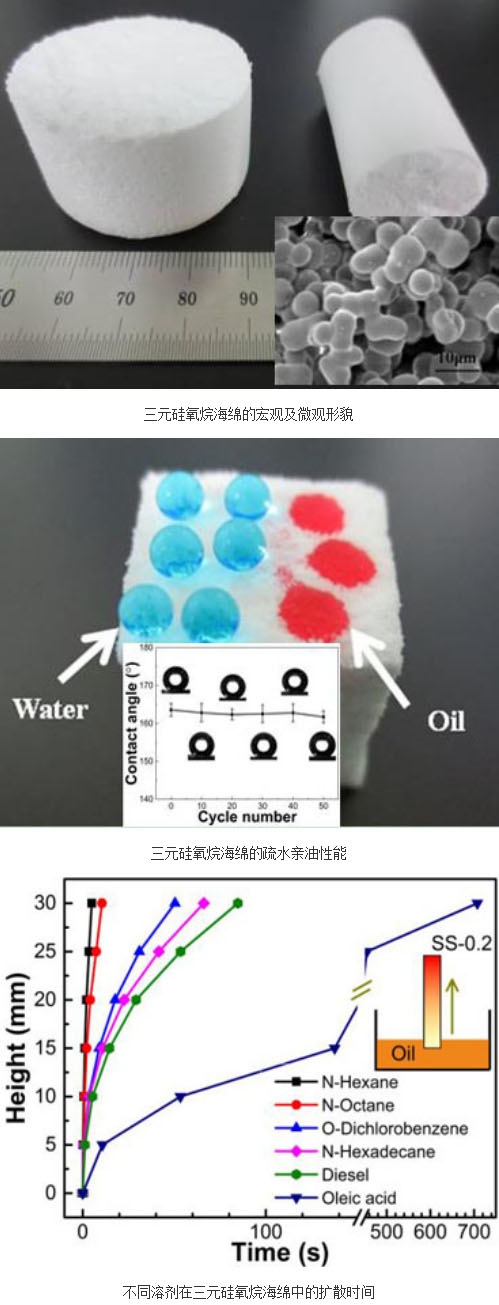Various oil products (petroleum and its products, oils and fats, and chemicals that are insoluble in water, etc.) bring convenience to people's daily life, but also bring great safety and health risks. For example, the oily wastewater generated during the transportation and processing of crude oil will cause environmental disasters due to lack of oxygen in the environmental medium; the effective separation of waste edible oils and fats (commonly known as waste oil) has become one of the bottlenecks in its high-value utilization; waste oil and urban life. After the sewage is mixed, it is directly discharged into the urban sewage treatment system, which not only causes the waste of environmental resources, but also greatly reduces the effect of urban sewage treatment. Focusing on the design, preparation and application of high-efficiency oil-water separation materials, it is of great significance to improve the efficiency of environmental resource utilization and the treatment of pollutants.
Ma Pengcheng, a researcher at the Xinjiang Institute of Physical and Chemical Technology, Chinese Academy of Sciences, developed a silicone polymer sponge material and studied the feasibility of using the material for the separation of oil-water mixtures. Researchers prepared ternary siloxane sponges by controlling the hydrolysis and gelation of silanes using inexpensive commercial non-fluorine organosilanes as the main raw material.
Compared with traditional silicone sponges, the ternary system sponge surface contains a large number of non-polar groups and high roughness, giving the material a superhydrophobic, super-oleophilic effect: the contact angle with water exceeds 150°, Can absorb 6-14 times its own weight of organic solvents and many oil compounds (including crude oil, gasoline, diesel oil, sunflower oil, etc.), and has excellent mechanical properties, the material's permanent deformation rate under 15 80% compression deformation Less than 25%.
The researchers also found that by optimizing the pore structure of the ternary silicone sponge, it is possible to achieve the controllable diffusion of different organic solvents in the sponge's internal structure, indicating that the material has the ability to separate mutually soluble organic compounds. In addition, the material also has the advantages of low density, high porosity, fast oil absorption, etc. It has broad application prospects in the fields of recovery and separation of organic chemical solvents, oily wastewater treatment, and recovery of leaked crude oil. It is a new type, highly efficient oil - Water/oil-oil separation material.
Relevant scientific research results were published in the Polymer Chemistry of the Royal Chemistry Council of the United Kingdom and an invited report was held at the 7th International Symposium on Engineering Plastics (EP-2015). It was highly concerned by the participating experts. The research work was funded by the Xinjiang Outstanding Youth Fund, the National "Thousand People Project" and the "Science and Technology Activities of Overseas Students" of the Ministry of Human Resources and Social Sciences.

Pressure Sensor,Pressure Transducer,Pressure Transducer Sensor,Air Pressure Sensor
Wuxi Winsun Automation Instrument Co., Ltd , https://www.jswxwinsun.com
